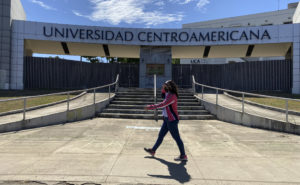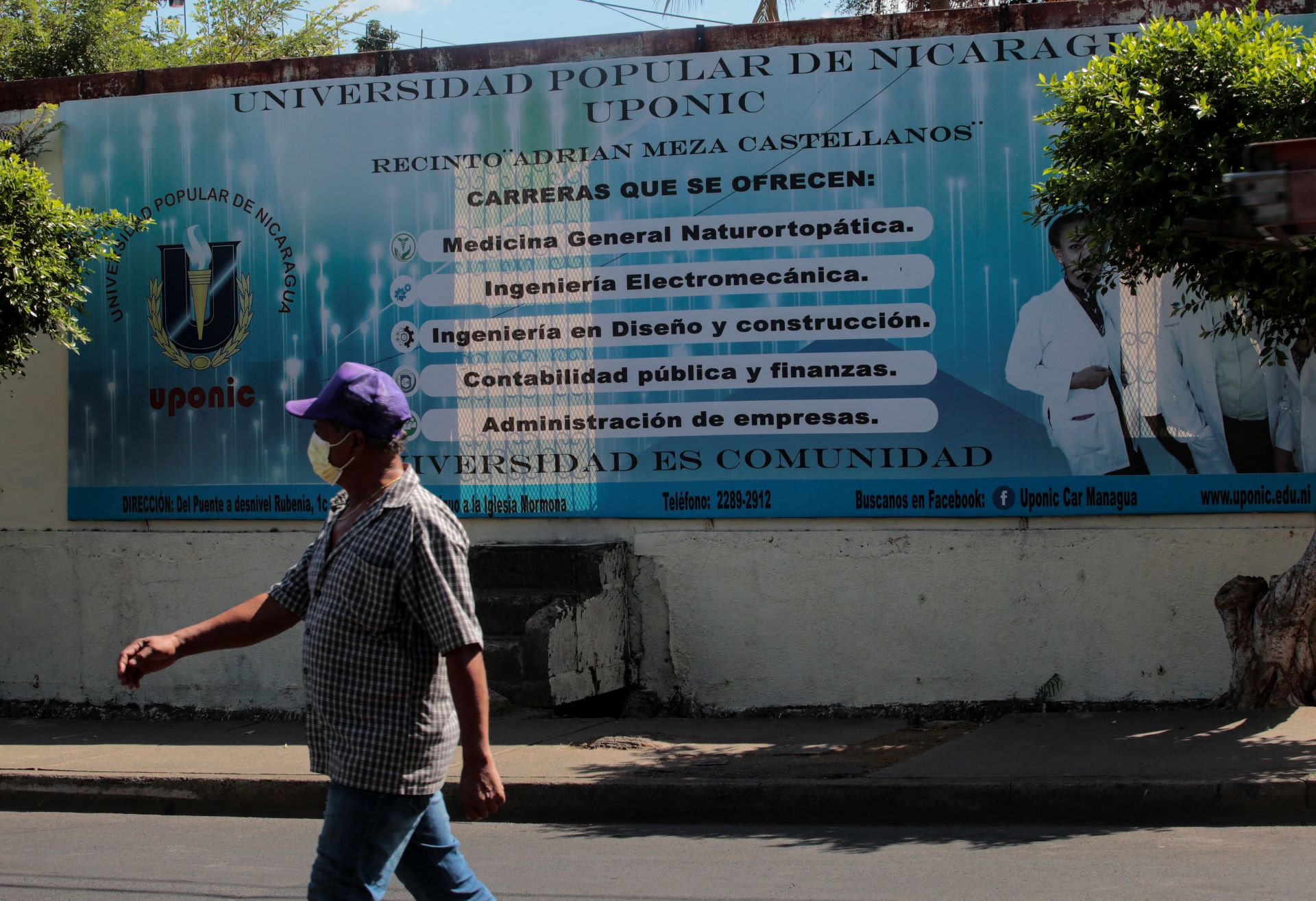Nicaragua’s National Assembly, dominated by Daniel Ortega and Rosario Murillo, approved reforms on March 31, 2022 that give the regime control over everything from administrative positions to academic programs in universities, Reuters reported.
The reform to the General Law of Education and the Law of Autonomy of Higher Education Institutions was approved with 75 votes in favor out of 91 Parliament representatives, “as such, the Ortega regime takes another step toward controlling universities,” Nicaragua’s independent news site Artículo 66 reported.

The law establishes the National Council of Universities (CNU) of the Sandinista regime as the main governing body, overruling the groups of academic experts from each institution that currently hold those powers, the news site said.
“This reform kills the autonomy of the universities that cost so much blood in Nicaragua. The regime now controls the CNU, which until now was only a consultative body of the universities,” Ernesto Medina, former rector of the National Autonomous University of Nicaragua, the country’s largest university, told Reuters.
The amendment put an end to more than 60 years of autonomy, a struggle, and a space that universities began to win in the Somoza era and that continued until the 1990s, which gave a fundamental boost to research, reported on March 31 Expediente Público, a Central American platform for investigative journalism.
We can take anyone
The Nicaraguan Parliament said in a statement that the reform strengthens the processes the regime promoted to restore the right to education to Nicaraguan youth, so that they receive free, quality, and inclusive education.
However, the law reform also removes the Central American University (UCA), a Jesuit institution critical of the Ortega-Murillo regime, from the list of private universities that make up the CNU, stripping it of public funding, added Reuters. UCA was a cradle of the nationwide protests against the regime in 2018, the news agency added.
The measures imposed against the UCA are aimed at “signaling to other universities, telling them ‘if we can do it to UCA we can do it to anyone,’ so they better fall in line, because their ultimate goal is to silence critical voices that may still be left in universities,” Medina told independent newspaper Confidencial Nicaragua.
In the first quarter of 2022, the Sandinista regime closed 16 private universities, including foreign and local institutions, Colombian daily El Espectador reported. In addition, since 2018, more than 3,000 university students have requested to be transferred to the University of Costa Rica to leave the country, the daily added.
Lawmakers loyal to the regime took it upon themselves to take over private universities that had been shut down, Confidencial Nicaragua said.
Nationalization of education
“They have violated university autonomy, academic freedom, which is forcing a whole generation of young Nicaraguans to be educated in a system that is partisan,” Héctor Rivera, who was studying at the recently closed Paulo Freire University, told El Espectador on March 31. Rivera was three months away from graduating with a degree in Political Science.
Adrián Meza, former rector of the Paulo Freire University who went into exile in Costa Rica, told Nicaraguan newspaper La Prensa that with the reform “every academic project, program, and study plan will be approved by the CNU,” while the National Council of Rectors, the body responsible for higher education policies, will disappear.
According to Meza, the reform also takes away powers from the National Council of Evaluation and Accreditation, since everything has to work in conjunction with the CNU. “In such a way that what we find in this first stage is a nationalization of education […], and to top it off and leave no doubt about what this is all about, the CNU reserves the right to take actions against universities. This is very serious,” he said.
“The whole world must condemn Ortega’s attitude, which is the same as that of the Cuban regime, and the Russian one. Universities have been closed because they are the perfect place to have open, true dialogues on any subject, including questioning Ortega’s dictatorial regime,” Nicaraguan newspaper Prensa Libre published on March 24.









